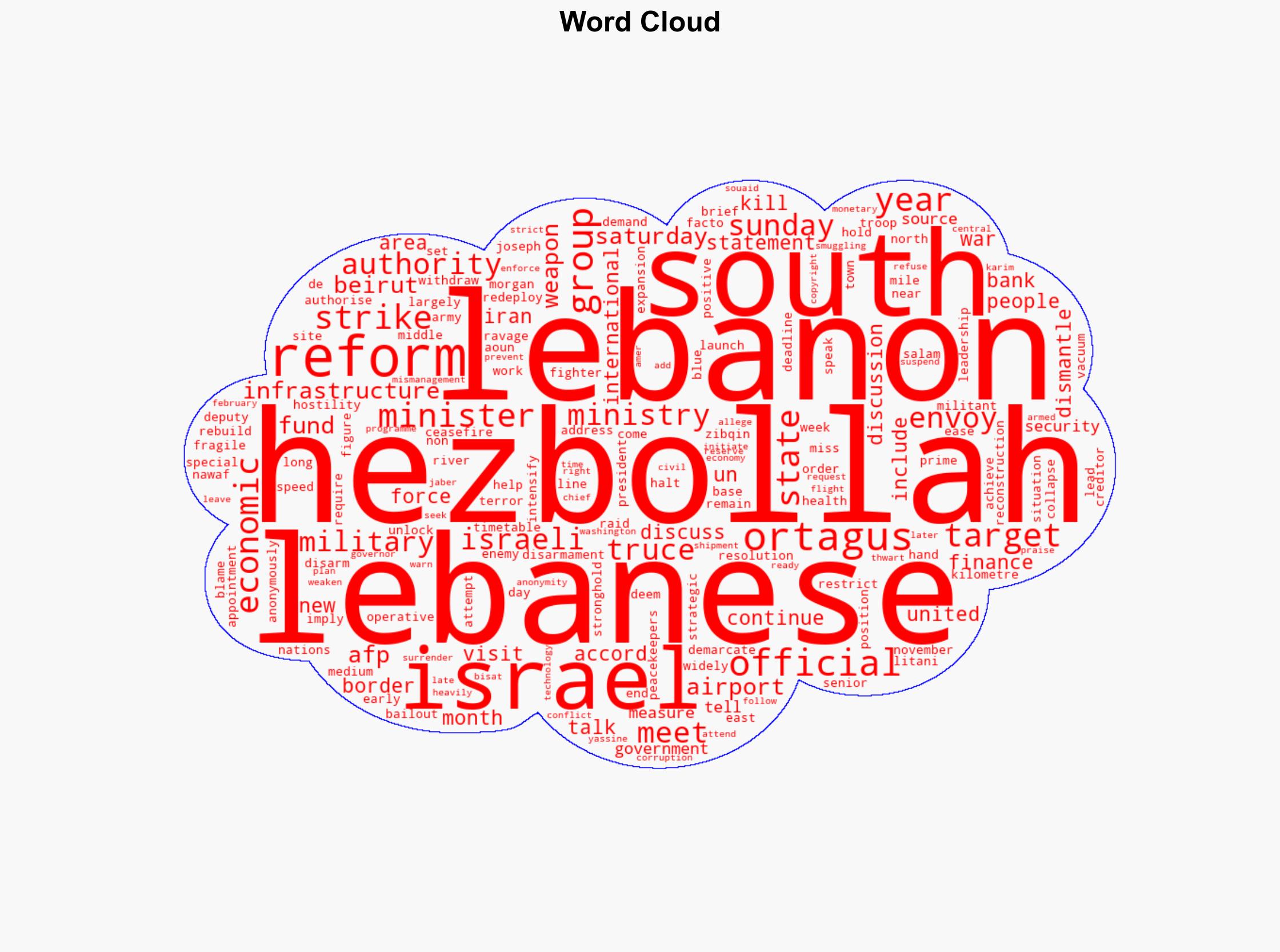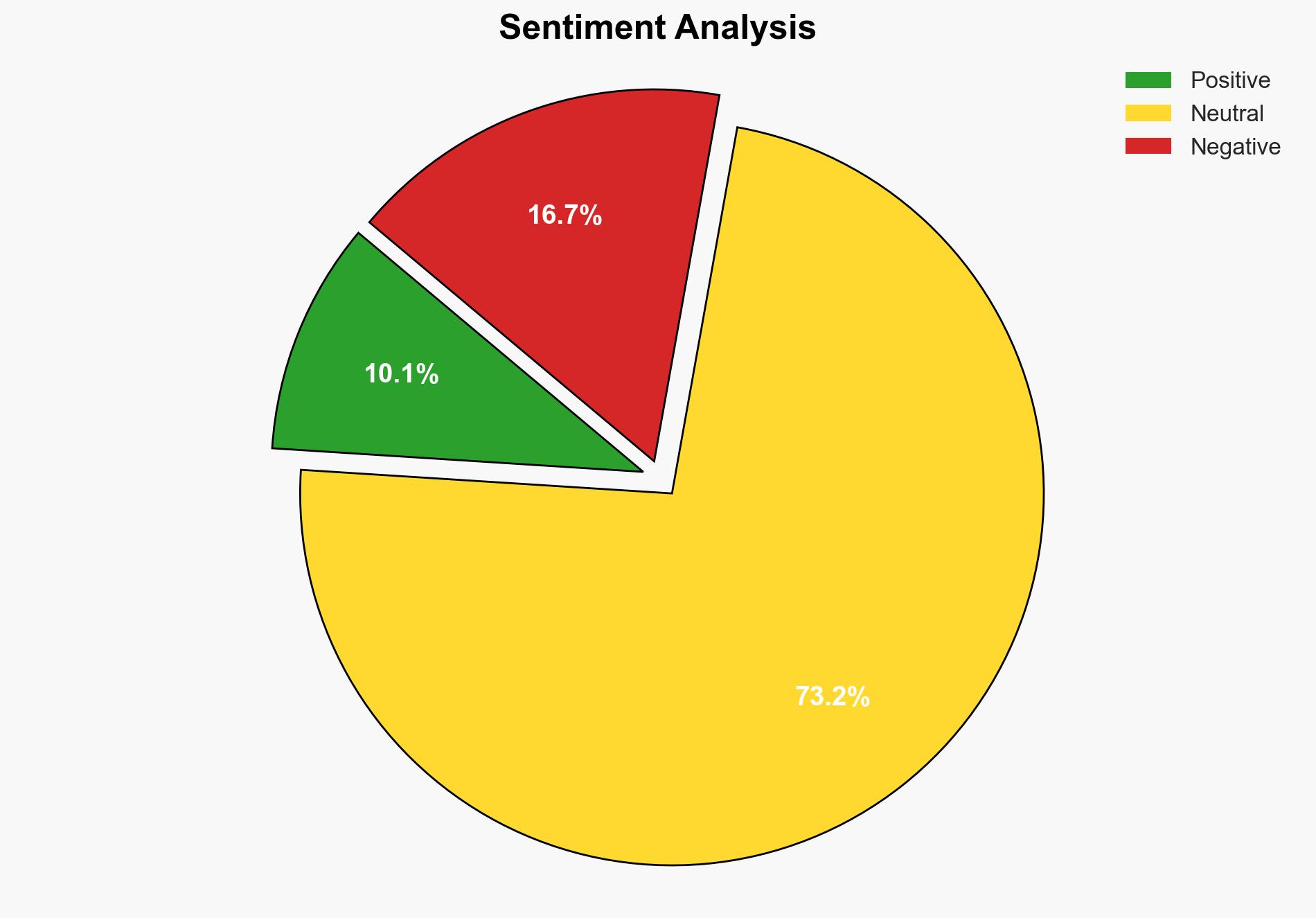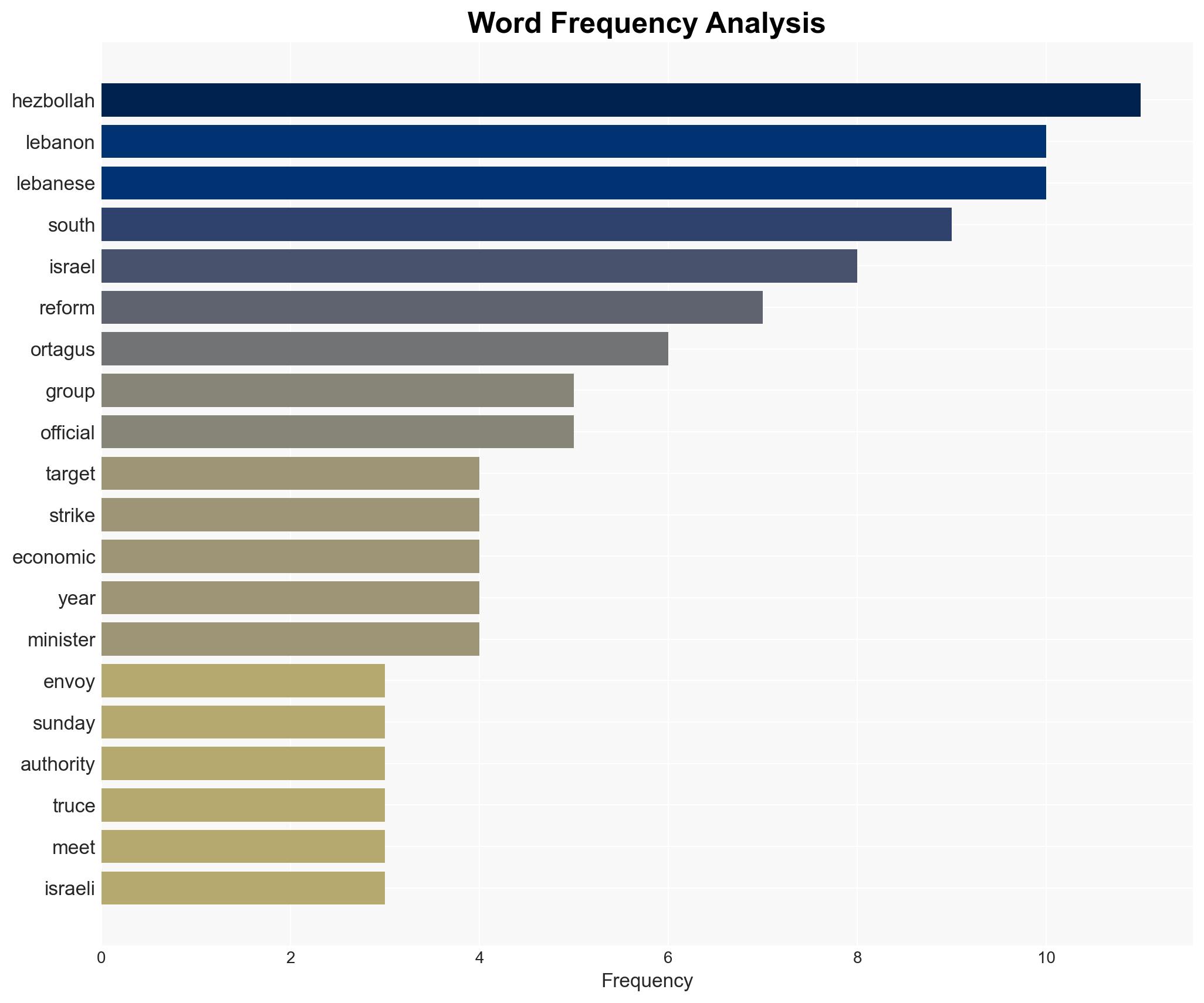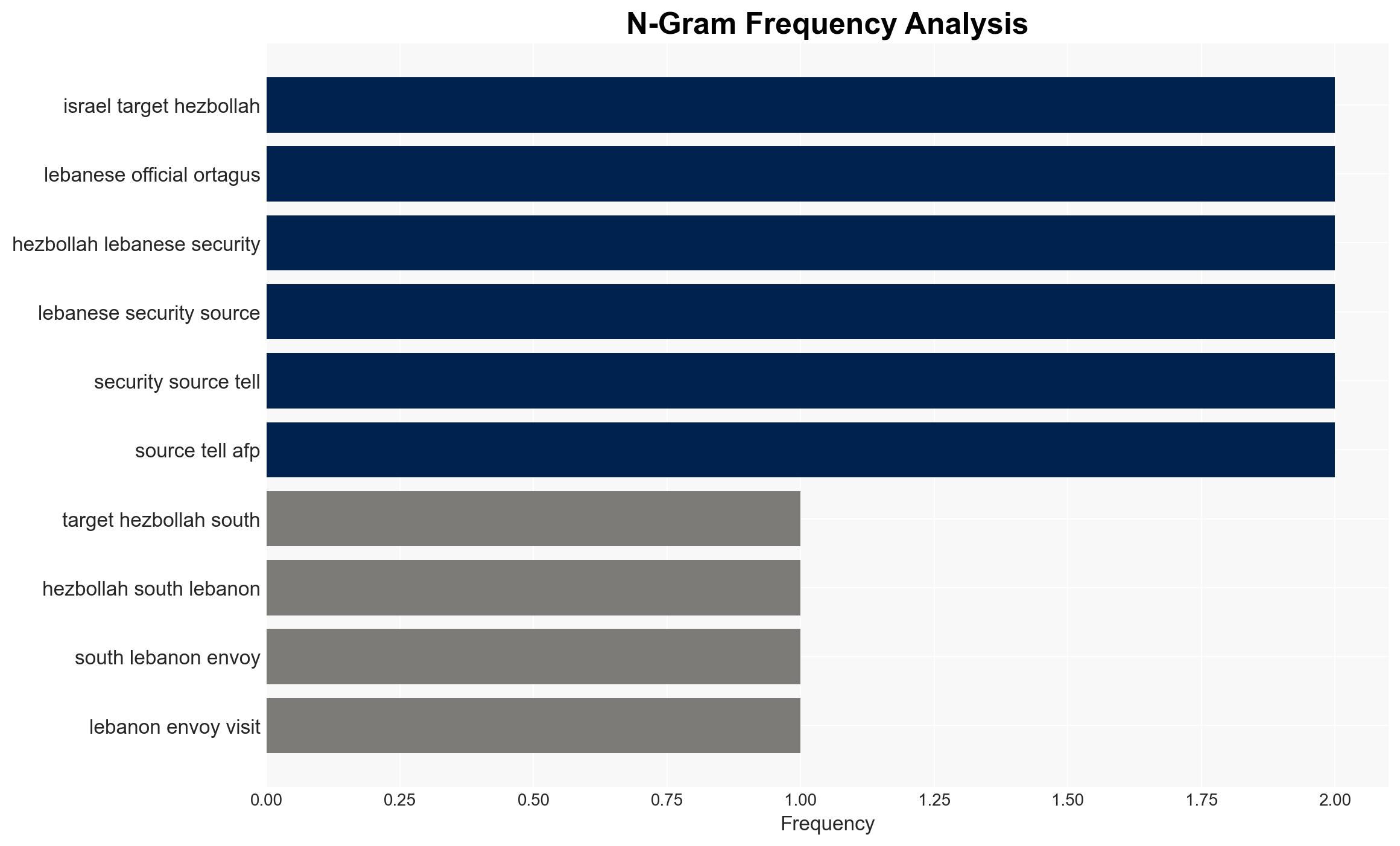Israel Targets Hezbollah In South Lebanon As US Envoy Visits – International Business Times
Published on: 2025-04-06
Intelligence Report: Israel Targets Hezbollah In South Lebanon As US Envoy Visits – International Business Times
1. BLUF (Bottom Line Up Front)
Recent military actions by Israel targeting Hezbollah in South Lebanon coincide with a visit by a US envoy. The strikes have resulted in casualties and are part of ongoing tensions despite a fragile truce. Discussions between the US envoy and Lebanese officials focus on disarmament and economic reforms, highlighting the need for international support to stabilize the region.
2. Detailed Analysis
The following structured analytic techniques have been applied for this analysis:
General Analysis
Israel’s military actions in South Lebanon are aimed at dismantling Hezbollah’s military infrastructure, which Israel perceives as a threat. The strikes occur amidst a backdrop of a fragile ceasefire, underscoring the volatility of the region. The visit by the US envoy, Morgan Ortagus, emphasizes the international dimension of the conflict, with discussions focusing on disarmament and economic reforms. These reforms are critical for Lebanon’s recovery from its economic collapse, which has been exacerbated by corruption and mismanagement.
3. Implications and Strategic Risks
The ongoing conflict poses significant risks to regional stability and national security. The potential for escalation between Israel and Hezbollah remains high, which could destabilize the broader Middle East region. Economic instability in Lebanon, if unaddressed, could lead to further humanitarian crises and increased migration pressures. The involvement of international actors highlights the geopolitical stakes and the need for coordinated diplomatic efforts.
4. Recommendations and Outlook
Recommendations:
- Enhance diplomatic engagement with regional stakeholders to de-escalate tensions and promote dialogue.
- Support Lebanon’s economic reform initiatives to stabilize the economy and reduce the influence of non-state actors.
- Encourage technological advancements in border security to prevent illegal arms shipments.
Outlook:
In the best-case scenario, successful diplomatic efforts and economic reforms could lead to a sustained ceasefire and regional stability. In the worst-case scenario, continued hostilities could result in a broader conflict involving multiple state and non-state actors. The most likely outcome is a continuation of the status quo, with periodic escalations and ongoing international diplomatic interventions.
5. Key Individuals and Entities
The report mentions significant individuals and organizations, including Morgan Ortagus, Joseph Aoun, Nawaf Salam, Yassine Jaber, Amer Bisat, and Karim Souaid. These individuals are involved in discussions and efforts related to the conflict and economic reforms in Lebanon.




